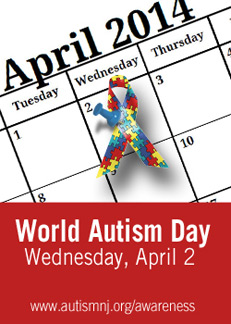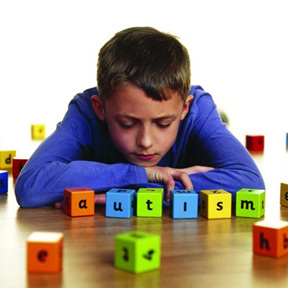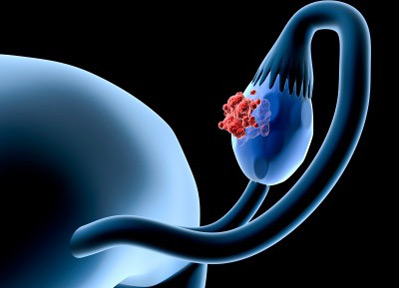|

 Autism test - a must for delayed language skills Autism test - a must for delayed language skills
Early intervention is important:
By Carol Aloysius
Autism is a complex condition starting in early childhood. Most
parents of autistic children are often confused as to why and how their
children developed this condition, and ignorant as to how they should
handle them in the right way.
Child psychiatrist, Department of Psychological Medicine, University
of Colombo, Faculty of Medicine and Lady Ridgeway Hospital, Prof.
Hemamali Perera, answers some key questions on autistic children in this
interview with the Sunday Observer.
Excerpts...
Q. What exactly is Autism? Is it a disease? A condition of the
mind?
A. Autism is not a disease. It is more correct to call it a
developmental disorder, where development of the brain is affected from
very early stages.
Q. What age group is most at risk of developing autism?
A. There is no particular age group in developmental problems.
The development is already affected even before the child is born.
Q. Is Autism inherited? Can someone carry it in his/her genes
and pass it on to an offspring?
A. The condition is genetically determined. There is a very
high heritability. The genetic vulnerability may come from either
parent. As it is more prevalent in males, the carrier of the genes is
more often the father, but mother also can be the carrier. At the same
time, if a child has autism, there is a rather high risk of the next
sibling also being a child with autism, especially if it is a boy.
Q. How early does the onset of the disease begin? In the womb?
The first year of life? Or later?
A. As I said, it is already determined in the very early
stages of the development of the brain in the foetus that a child is
destined to have autism
Q. Are there degrees of autism? Are there children with Mild,
Moderate, or Severe Autism? What causes these differences?
A. While there are common clinical features that determine
autism, the intensity of these features and the degree to which they
affect the child's functioning as an individual, falls into a spectrum.
At the worst end would be children who are severely affected and they
would be intellectually impaired, may never develop language and may
even have other neurological disorders such as epilepsy.
At the opposite end of the spectrum are the children who are
intellectually normal or even superior. The term 'high functioning' is
often used to refer to these children. They may even have savant skills
in certain abilities such as music or art.
The majority fall in between these two ends and are moderate or mild.
It is not exactly known what causes the difference, and whether this
could be predicted with regard to outcome in later life. It may mean
that the genetic factors involved are also quite complex.
Q. What makes an autistic child different from a normal child?
A. The difference from a normally developing child is not in
the external appearance but the functioning and behaviour. The
difference is mainly in the areas of social interaction and social
communication.
Q. Does autism affect a child's way of playing and his general
habits?
A. A child with autism prefers to play alone and are
restricted in the choice of play and play material that they use.
 For example, they may play with one single toy even when there are
plenty around them. Sometimes the preferred play material is a piece of
string or a cloth rather than a proper toy. In older children, group
play activity is not favoured. Even if they do play, they would want to
have it their way rather than play together. For example, they may play with one single toy even when there are
plenty around them. Sometimes the preferred play material is a piece of
string or a cloth rather than a proper toy. In older children, group
play activity is not favoured. Even if they do play, they would want to
have it their way rather than play together.
Q. What about their relationships with other children?
A. Children with autism do not understand relationships. They
do not understand the concept of a friend. They may not be sensitive to
the feelings of others, which makes associating with such a child rather
challenging to the peers. Also, the child with autism will not
understand why he / she is rejected by peers.
Q. What about their emotional relationships with their parents
and siblings?
A. As I said, children with autism do not basically understand
relationships. Hence relationships with their parents and siblings are
similar to their peer relationships. They often do not like physical
closeness. Some children may adversely react to being cuddled or hugged.
They may not reciprocate affection shown by parents. They often
ignore when called by name to the extent that parents may wonder whether
their child can hear. A parent would notice that they do not play with
their brothers and sisters, but play alone.
Even if they play alongside with them, they will not share with a
sibling.
Q. On the subject of behaviour, how early can one detect
autism in child? What are the symptoms to look for?
A. It used to be thought that a definite diagnosis of autism
is not possible until the child is three years. Now it is accepted that
diagnosis is possible even before 12 months of age. By 18 months, a
definite identification is possible.
However, there are many children who appear to be developing normally
in speech and relationship with others but regress in these abilities
when they reach around 15 months or a little later. These children have
not been exactly normal in their development but parents perceive them
as being such when regression of skills occurs.
The most important sign to look for is the delay in development of
language. All children who otherwise seem to be developing well, but
delay in acquiring language, should be assessed for autism. This is
important especially in the context of the high prevalence we have in
Sri Lanka and all over the world.
The other important signs are the avoidance of eye contact with
others, desire to avoid interaction with others but be alone, unusual
play and not pointing to ask for things. In addition, these children
have repetitive movements of hands or fingers or odd gesturing.
Q. Do these symptoms get worse as they get older? Is the
behaviour of primary school autistic children different from those in
their adolescence ?
A. Limited social communication and social interactions will
continue into adolescence and beyond. Children who are intellectually
able will learn from experience how to survive in the society, as they
grow older. Odd behaviours such as mannerisms and rigid preferences are
likely to continue.
Q. What about their sleeping habits? Do they sleep through the
night or do they wake up constantly? Do they get frightened easily? If
so why?
A. There are no specific sleep problems that are unique to
autism. Sleep is normal in the majority. Few may have unusual sleep
patterns such as regularly going to bed late. With some children,
parents may wake up in the night to find their child quietly playing.
Q. Food habits? Can they feed themselves? Are they fussy
eaters? Do they know what they are eating?
A. Some children have food preferences and their choice of
food items can be severely restricted. Unless there are behaviour
problems associated with eating-for example refusing to touch food, they
are independent in feeding themselves. Children with food fads will
avoid certain textures or tastes of food.
Q. What about their IQ? Do most autistic children have low IQs
or are there exceptions? Is it true that some are very talented in a
certain field of activity such as music, painting, maths, while some are
computer wizards? How are they gifted and retarded at the same time?
A. Until recent times, children with autism were thought to be
intellectually less able. Our experience is rather different. Many
children learn many things at a young age but will not demonstrate their
ability on request.
Sometimes they will work only with their parents. Teachers may not
even realize that the child is able to read and write well and will be
reluctant to believe the mother.
There are also children with autism who are gifted in the fields you
have mentioned. We have seen children with amazing rote memory and
ability for calendar calculation.
Q. Are there tests to diagnose autism ? What are they?
A. Diagnosis is through clinical observation. There are
screening tests but the ultimate judgement is based on clinical
findings.
Q. Who should a parent
approach once their child has been diagnosed as autistic?
A. Knowledge about autism among the general public is crucial.
Many parents reassure themselves that the child will grow out of their
problems and thereby delay in seeking help.
Early intervention is absolutely important as we are talking about
helping development. When late, the interventions are often compromised.
Parents can go to any doctor when they suspect possible autism.
However, the intensive assessment that is needed for diagnosis is
currently done by only a handful of child psychiatrist or paediatricians.
Q. Is psychiatric or psychological counselling preferable for
these children? What is the difference?
A. Counselling is irrelevant. What is needed is a
well-structured intensive programme to help in developing deficient
skills.
Q. What about training for parents and caregivers?
A. Training parents to carry out a home-based program is very
important, simply because resources are limited outside, and the amount
of time the child needs is possibly only at home.
Q. What about trained teachers to help them overcome learning
and speaking disabilities? Do you think we have enough?
A. This is a massively under-resourced area. Teachers in
mainstream education have very poor knowledge and are ignorant about
managing these children.
There are about 4,000 children with autism who enter Grade one each
year if you use the prevalence rates to determine this number. There are
many who can fit into the school curriculum. I have already mentioned
that some of them have very high IQ probably the highest in that class.
Education sector is not organized to give these children a fair chance
or provide for their right to education.
A training program is now planned by the Ministry of Education to
train teachers on managing children with special educational
requirements in main stream classes. Though late, this is a very
positive move.
Q. At the LRH how are these children helped? Do you have
special centres?
A. We have a program at LRH to diagnose and train parents on
home-based intervention. There are centres in the private sector. I am
unable to comment on their quality.
Q. What are the myths surrounding autism?
A. Some people are misinformed that autism is caused by
immunisation. This is totally false. You run the risk of endangering the
child's life by denying the protection provided by vaccinations.
There are many cultural and religious myths that are applied to any
developmental problem in children which are barriers to getting early
attention the child needs.
Q. What kind of diet is needed for them?
A. There are some myths and misinformation about particular
diets to be avoided in children with autism. A lot of information in
this regard is available on the Internet that people read.
There is no scientific basis for any of this and a child should not
be deprived of quality nutrition based on this kind of information. No
child with autism has ever improved in autism behaviour by avoiding
certain diets.
Q. What is the main theme of this year's Autism Day?
A. The main aim is to raise awareness and pressure the
governments to provide for the health, education and social welfare of
children with autism.
Q. Your message to parents? Caregivers?
A. If your child has not developed language to an age
appropriate level by 18 months, consult your doctor. This is
particularly important if the child also does not give eye contact,
plays alone, and has repetitive purposeless movements of hands or
unusual gesturing.
Elderly women may benefit from higher amounts of protein
Elderly women could benefit from consuming 29 percent more protein
than the current nutrition guidelines recommend, according to new
research from Purdue University.
 "Our data suggests that the current dietary protein requirement
estimate may be too low and reinforces that more research is needed to
identify accurate protein amounts for older adults," said nutrition
science professor Wayne W. Campbell, an expert on dietary protein and
human health. "Our data suggests that the current dietary protein requirement
estimate may be too low and reinforces that more research is needed to
identify accurate protein amounts for older adults," said nutrition
science professor Wayne W. Campbell, an expert on dietary protein and
human health.
"I think the current recommended dietary allowance values serve an
important role in that they are the foundation that guides national and
international feeding programs, but these findings, along with previous
research, indicate that consuming amounts of protein moderately above
the current recommended dietary allowance may be helpful."
The current recommended dietary allowance for women older than 70
years is 0.36 grams for each pound of body weight or 46 grams of protein
for a 130-pound woman. This amount is the same for all women 19 and
older. "The current dietary reference intakes for elderly adults rely on
data collected from younger people and extrapolated to include elderly
people.
Also, the scientific method used for the past 50 years to determine
protein needs is not an ideal technique for older adults," said
Campbell.
Campbell worked with the scientists who developed a new non-invasive
method to evaluate protein amounts.
The indicator amino acid oxidation method has been used in children
and young men, and this is the first time it was used in an elderly
population. In this study, six women, ages 80 to 87 years, consumed
beverages with 20 amino acids, the building blocks for high-quality
proteins, including phenylalanine and tyrosine, on seven different
testing days during the three-month study.
The amounts of amino acids in the beverages were different each
testing day and a tracer isotope was measured from their breath and
urine samples collected periodically during each eight-hour testing
period.
- Medicalxpress
Scientific breakthrough can lead to new ovarian cancer treatment
The cause of a rare type of ovarian cancer that most often strikes
girls and young women has been uncovered by an international research
team led by the Translational Genomics Research Institute (TGen),
according to a new study.
The findings revealed a "genetic superhighway" mutation in a gene
found in the overwhelming majority of patients with small cell carcinoma
of the ovary, hypercalcemic type, also known as SCCOHT. This type of
cancer usually is not diagnosed until it is in its advanced stages. It
does not respond to standard chemotherapy and 65 percent of patients die
within two years. It has affected girls as young as 14 months, and women
as old as 58 years - with a mean age of only 24 years old. In this
study, the youngest patient was nine years."This is a thoroughly
remarkable study. Many genetic anomalies can be like a one-lane road to
cancer; difficult to negotiate. But these findings indicate a genetic
superhighway that leads right to this highly aggressive disease," said
Dr. Jeffrey Trent, President and Research Director of Tgen, and the
study's senior author. "The correlation between mutations in SMARCA4 and
the development of SCCOHT is simply unmistakable."
 Dr. Trent added that while the breakthrough is for a relatively rare
cancer, discovering the origins of this type of ovarian cancer could
have implications for more common diseases. Dr. Trent added that while the breakthrough is for a relatively rare
cancer, discovering the origins of this type of ovarian cancer could
have implications for more common diseases.
Much of the work in this study was inspired by the memory of Taryn
Ritchey, a 22-year-old TGen patient who in 2007 lost her battle with
ovarian cancer.
"Taryn would be incredibly excited about this amazing new study, and
she would be glad and thankful that other young women like her might now
be helped because of TGen's ongoing research," said Taryn's mother Judy
Jost of Cave Creek, Ariz. "My daughter never gave up, and neither has
Tgen."The SMARCA4 gene - previously associated with lung, brain and
pancreatic cancer - was the only recurrently mutated gene in the study's
samples. The implications of this discovery, therefore, may be
widespread.
"The findings in this study represent a landmark in the field. The
work identifies SMARCA4 mutations as the culprit, and most future
research on this disease will be based on this remarkable discovery,"
said Dr. Bert Vogelstein, pioneer in the field of cancer genomics. He
did not participate in the study but is familiar with its findings.
"The past decade of research has taught us that cancer is a vastly
complex disease.
Profound patient-to-patient variability has made treatment and
diagnosis for many tumor types at times very difficult.
In this case, however, we have found a single genetic event driving
SCCOHT in nearly every patient," said Dr.William Hendricks, a TGen Staff
Scientist and another author of the study.
- MNT
|

